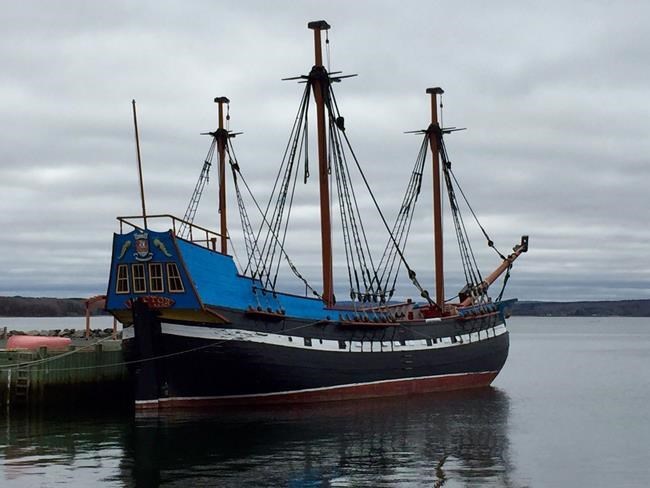PICTOU, N.S. — When post-tropical storm Fiona ripped through Nova Scotia in September, it led to another setback for the team restoring the historic ship Hector — and a surprise gift of old-growth lumber.Â
Work to restore the replica of a ship that brought about 190 settlers from Scotland to Pictou, N.S., in 1773 had been delayed by the COVID-19 pandemic and supply chain issues.
Vern Shea, restoration manager for the Ship Hector Society — the team working on the historic vessel — said Tuesday that when he went to the site a couple days after the Sept. 24 storm that took out power to most of the region, he wasn't sure what work the team would be able to do. It was then that a board member phoned and asked if he needed any of the many pine trees that had been felled by the storm.
"So then I got thinking … I bet there's a heck of a lot of trees that we might be able to salvage here," Shea said.Â
The restoration team posted a request on Facebook for any downed trees that needed removal and could be used for the shipbuilding project. Shea says they were immediately inundated with calls from people wanting felled trees taken away.
"We had to shut that down after just two days — we were overwhelmed with people wanting the tree cleanup," he said.Â
Shea said the team prioritized requests from seniors, adding that staff quickly got to work cutting up and removing trees from across Pictou, located about 160 kilometres northeast of Halifax.
"We just remobilized the crew because we couldn't do anything on the ship," he said. The work site was without power for about two weeks due to the storm, and the ship's protective cover had been blown off.
"We've got a lot of wood, old-growth stuff that fell down on properties that were actually originally owned by some the first settlers to the area," he said.
Shea said the team recently received an offer from a descendant of one of the Hector’s Scottish passengers to mill the wood — at no cost — some of which is up to 250 years old.
"People really want to help, and it's a really good feeling," Shea said.
The wood, which includes old-growth pine and high-quality cherry wood, will be used for interior parts of the ship, such as the galley and captain’s cabin.
Shea said the team of about 10 staff is hard at work to ensure the ship can be back in the water by September 2023, in time for the 250th anniversary of Hector's landing in Pictou. The ship was the first carrying Scottish immigrants to Pictou, an area that would go on to be the entryway for thousands of other settlers from Scotland.
"(Hector) opened up the floodgates, that's why we call it the Canada Mayflower," Shea said, referring to the English ship that brought the Pilgrims to America, who in 1620 established the first permanent New England colony.
This report by The Canadian Press was first published Nov. 1, 2022.
— By Lyndsay Armstrong in Halifax.
---
This story was produced with the financial assistance of the Meta and Canadian Press News Fellowship.
The Canadian Press




